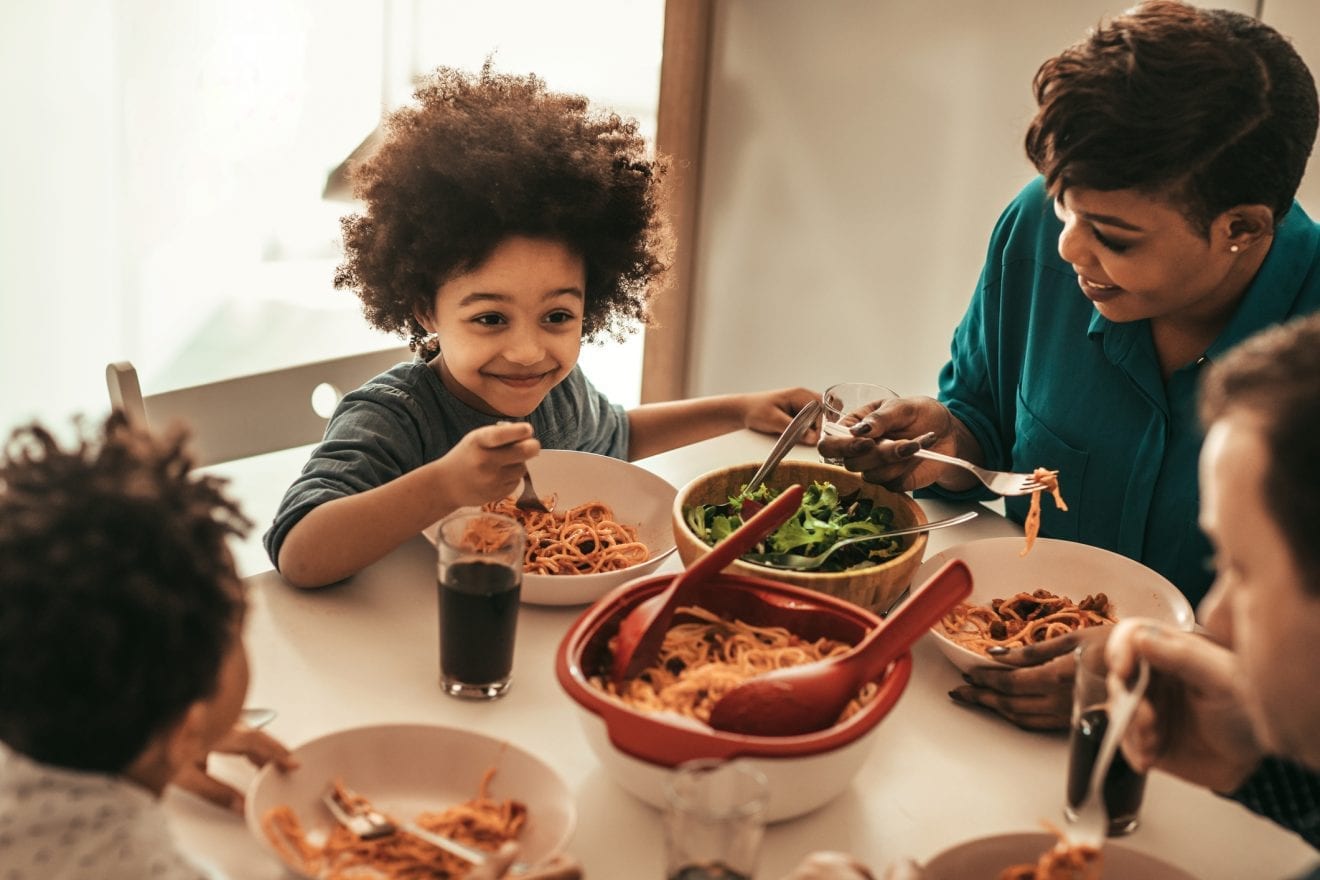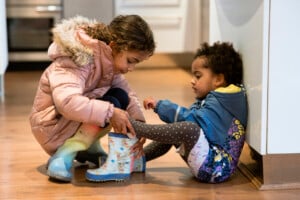Connecting with young children during mealtimes is critical for healthy social and emotional development.1,2,3,4 Sitting together around a dinner table, sharing a meal, and discussing your day is a comforting ritual to introduce to your children from a young age. This time allows you to check in with your partner and children for uninterrupted bonding time. If you start this ritual early, your children will come to expect and respect it. And they will likely make it a priority as they get older. Sometimes you need inspiration for what to talk about, so these family conversation starters will help.
But first, try to keep these mealtime conversations sacred even when your children are very young. Set an example by keeping your smartphone in another room, not taking phone calls during dinner, sitting together at the table with the TV turned off, and making it a point to have a conversation.
Getting children to talk to you about their day and share details with you can be challenging if you do not ask pointed questions. During this mealtime, you can start rituals of specific conversations you have together. Here are some ideas for family conversation starters with young children.
Family Conversation Starters for Mealtimes
1. Ask your family to go around the table and say the best part of their day.
This is the simplest thing, and it is usually very positive and can lead to additional family conversation starters. And maybe even help you to learn something about your child! This question is especially important if your child is school-age or goes to childcare and you are not with them all day. This simple question can give you a window into your child’s day.
Be sure to share the best part of your day. And set an example by explaining why it was the best part of your day and how it made you feel. Talking about feelings is an important skill for young children. This question can help bring up feelings and emotions as you discuss your child’s answer.
2. Ask your children what act of kindness they did for someone today.
The first few times you ask this question, your child may not have an answer. But if you continue to ask it every evening, they will remember and start to purposefully do an act of kindness for someone so that they have something to report during dinner time. Set an example of talking about something simple that you did. “Today, I allowed another driver to pull out in front of me.” “Today, I texted a friend to say hello.”
Remind your child that no act of kindness is too small. Suggest things they can do tomorrow, like ask a child to play, play with a younger sibling, or smile at a new child in the classroom. This teaches children to think beyond themselves, consider others’ feelings, and build empathy.
3. Ask your children what they are grateful for today.
Try to get them to talk about something that makes them feel happy or secure, such as their stuffed animal, favorite toy, sibling, mommy or daddy, or a best friend. Talk about what it means to be grateful and why it is important. Talk about what you are grateful for (often tell your children you are grateful for them).
4. Ask your children what they are looking forward to about tomorrow.
This can be at school or home, allowing you to plan for the next day together and let your child think about time and how it relates to their life. Ask follow-up family conversation starters such as “Why are you looking forward to that?” and “What do we need to do to prepare for our picnic tomorrow?” Include your child in the planning.
5. Ask your child what made them unhappy today.
Just as it is important to talk about happy emotions, it is equally important to give your children opportunities to discuss and process more difficult emotions. This may allow your child to share something that happened at school that was upsetting or scary for them. Help your child discuss why they feel the way they do. And validate their feelings. (“If my friend played with someone else instead of me on the playground, I would feel sad too”).
Remind your child that they can always discuss anything with their family. Make mealtimes a time of connection, trust, no judgment, and safety with these family conversation starters. This tradition will provide a foundation for their teen years when that connection is more important than anything!































